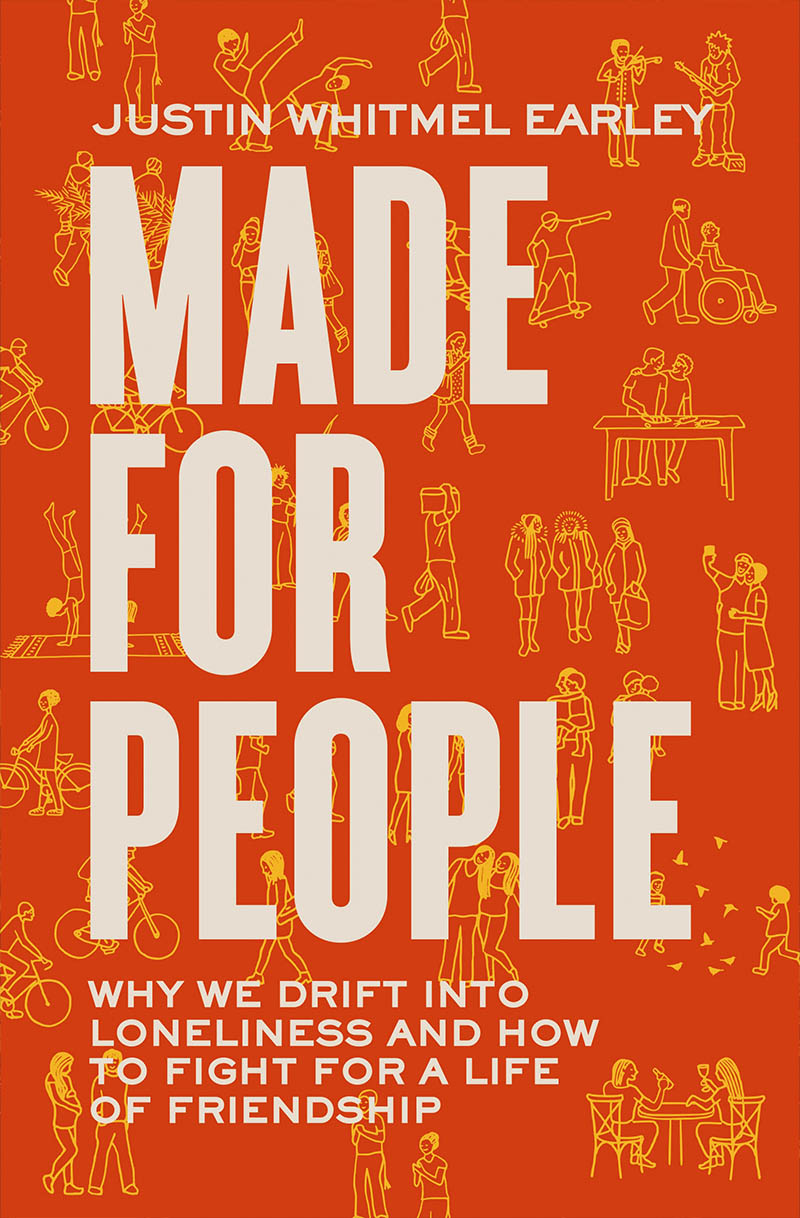5 Habits to Help Make Discipline Easier

The problem with discipline is we have all the wrong instincts. Think about it. When a child is about to run into the street, we all do the same thing – grab them! It’s a wonderful instinct. But when it comes to moments of discipline, it is almost always the opposite. If you are a parent like me, in a moment of misbehavior your instinct is to get angry, take control, and hurry back to normal life.
But that’s not what they need. They need connection, patience, and time. In other words – they need a parent, not a problem solver. This is where habits can help. Habits help retrain our instincts, and practicing new discipline habits can help create new patterns of patience and presence with your kids in those difficult moments.
Here are five habits we practice around our house:
1. Pause for Prayer
Pausing for prayer is a quick mental habit that changes my approach to discipline. For me, it happens fast, often as I’m running up the stairs to break up a fight. Why pray then? Because my instinct otherwise is to tell myself all kinds of lies about my kids. Like: “They’re doing this just to frustrate me.” Or, “I can’t believe they keep messing this up.”
But when I pause to pray, I remind myself that I’m much more like them than not. For example, I might say: “Lord, remind me that I’m also a forgetful person that makes the same mistakes over and over.” Or, “Lord, remind me that I also care too much about my stuff.” Pausing for prayer helps remind me that I too need a parent, and Jesus that good parent. He will be truthful with me about my wrongs, and he will protect me from myself, but he will also be gracious as well. That’s what my children need from me too.
2. Use Body Language More than Words
Often in moments of discipline, I am tempted to beat up on them with my words and logic. As adults, we have much more developed brains. We are better at rationalizing. And we just have much more practice with talking and winning arguments. So it is easy for me to barge into the room with a four-year-old and just start talking: “Why did you make this mess? Didn’t you realize you are going to have to clean up this mess? And didn’t you think about the fact that mommy and daddy are now going to have to buy a new rug…” And so on.
The problem is, of course, that they didn’t think. They did what they felt like doing. Which means that here, discipline is much more about retraining the heart than it is retraining the mind. So they need more than words, they need body language too. For me, this means getting on one knee to talk to a toddler, or sitting on the bed beside my nine-year-old. It might mean creating space and going to a different room to be alone and talk. It often means paying attention to my tone more than my words. I might use the firmness of my voice with a toddler to help get their attention, or use the softness of my voice with an older child to help them understand my seriousness.
Either way, you need good habits of body language to get to your child’s head and heart.
3. Practice Confession
It is helpful to remember that none of us wants to admit our mistakes. And yet, admitting our mistakes is one of the best things that can happen to us. In our relationship with God, confession and repentance are fundamental. In our relationship with our spouse, admitting when we’ve messed up is key to working on marriage. We need to make sure we offer that opportunity to our children by leading them through confession after moments of discipline.
Often, my sons will not want to say, “I’m sorry I hit you, that was mean,” and yet – that’s exactly what they need to say in order to get to reconciliation. So of course, habits of practicing confession necessarily means we will have some groaning and reluctance, but it’s our job as parents to persevere and help them learn to apologize. Apologies are much more something we practice, rather than spontaneously perform because we feel like it. And that’s OK, often we don’t feel sorry until we say sorry, and the words help lead our hearts.
So I try to make a habit of helping my sons look into their brothers’ eyes, say what they did, and say sorry for what they did. This may not be easy, but it can become normal, and it’s always worth it to get to reconciliation.
4. Be Careful about Consequences
Often as a parent, I am tempted to be dishonest with consequences. “You’re grounded for a week if you don’t come down here right now.” Or, “I’m not buying you any more toys if you don’t put this away.” In the end, it just teaches them that I’m not actually serious about what I say, and that empty threats are a good way to control behavior. Further, using the “No dessert tonight!” usually is an excuse to avoid what we actually need to do – which is pause, figure out what’s going on, and actually engaging with my child.
When I do that, the consequences are usually more natural to the moment. For example, if I have to break up a conflict and tell kids to share a toy, the consequence is already there. They had to stop playing, sit down and talk, apologize to each other, and one or both of them had to give up the toy. Done rightly, there are a lot of consequences already in that moment. But standing on the sidelines yelling about how “No one is going to get any more toys if that fighting doesn’t stop!” is much more about me avoiding my true, involved role as a parent than it is about good consequences.
So make a habit of being honest with consequences, and don’t say things that won’t actually happen. Instead, get involved.
5. Always End in Reconciliation
In a family, conflict is a given. What is not a given, is reconciliation. As parents, one of our most important jobs in moments of discipline is to make sure that the repair work is done before we just move on with the rest of our life. Where our instinct is to control the behavior and get back to the errand we were running, habits of reconciliation can help us focus on the most important thing – relationship. These habits remind us that the most important thing happening here is us learning how to love and forgive, day after day.
In our family, we try to act out reconciliation in some small way. With my littlest ones, this means tickling them or joking with them after a moment of discipline. If I can’t get them to laugh, I’ve probably been too hard on them. Or if I don’t want to tickle them, I’ve probably let myself get too angry.
With my older children, this means a long hug, until we can all smile again. We call this the “brother’s hug.” So when two of them have been fighting, after everything is done and we’ve confessed and forgiven, we encourage them to hug and hold on, ideally until both of them smile again. And hugs help. It’s a physical reminder that we’re happier with this person than without them. Because conflict is a given, but reconciliation is a choice.
In the end, parenting involves a whole lot of discipline. But these moments don’t have to be about anger and control. They can be about humility, relationship, and learning to love each other like God loves us – and habits can help with that.
Photo credit: ©GettyImages/Gravity Images

Originally published November 09, 2021.







